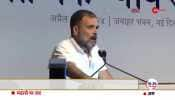New Delhi: Huge irregularities have surfaced in the functioning of Central Drugs Standards Control Organisation (CDSCO), with a parliamentary panel pointing out that at least 33 drugs have been allowed to be sold in India without proper trials.
According to a report by the Parliamentary Standing Committee on Health, at least 33 drugs were approved for sale in India during 2008-10 without conducting trials on Indian patients, and there was no scientific evidence to show that they are "really effective and safe" for them.
The panel also pointed out that there was an "apparent nexus" between drug manufacturers and experts, whose opinion matters "so much in the decision making process at the CDSCO".
"On an average, the DCGI (Drug Controller General of India) is approving one drug every month without trials. This cannot be in public interest by any stretch of imagination," the panel observed.
It also gave examples where the opinions of experts were based simply on "personal perception".
"In case of clevusine (of Phamasset Inc.), three experts (a professor of medicine of AIIMS, New Delhi, a professor of medicine of K.B.N. Medical college, Gulbarga, and a professor of medicine of R.G. Kar Medical College, Kolkata) located at different places thousands of miles apart from each other, sent word to word identical letters of recommendation," it said pointing out one of many such cases.
"Is the committee mistaken in coming to the conclusion that all these letters were collected by the interested party," it said, adding that the cases pointed to an "apparent nexus".
The panel has also asked the ministry to conduct an enquiry and "take appropriate action against the officials".
Among the 33 drugs which have been allowed without trial, the panel says, the ministry in the information given to the panel, missed name of two controversial drugs, `ademetionine` and `FDC of pregabalin`.
Pregabalin is not allowed to be sold in developed countries.
The panel also pointed out that out of randomly picked drugs which the panel wanted to check for the record of trials, the ministry could not provide the files of three drugs -- `pefloxacin, lomefloxacin, and sparfloxacin`.
"Strangely, all these cases also happened to be controversial drugs; one was never marketed in US, Canada, Britain, Australia, and other countries with well developed regulatory systems while the other two were discontinued later on," it added.
All three drugs are currently being sold in India and the panel has asked the ministry to "reconstruct and review the files".
On the rest of the 39 random drugs, the panel found at least 13 drugs (33 percent) which did not have permission for sale in any of the major developed countries.
The list includes drugs like Buclizine (for appetite stimulation), nimeslide injection (panacea), pregabalin, which was missing from the government list for not having proper trial, and ofloxacin in combination with ornidazole, which is commonly used for gastrointestinal infections, among others.
As per the rules, a new drug discovered outside India, should conduct trials in India on no less than 100 patients at three or four different hospitals. However, as many as 11 drugs out of these 39 never conducted any trial but were allowed to be sold. At least seven other drugs also flouted the norms of trial, but were allowed.
In 64 percent of the drugs, no medical approval was taken.
IANS
















